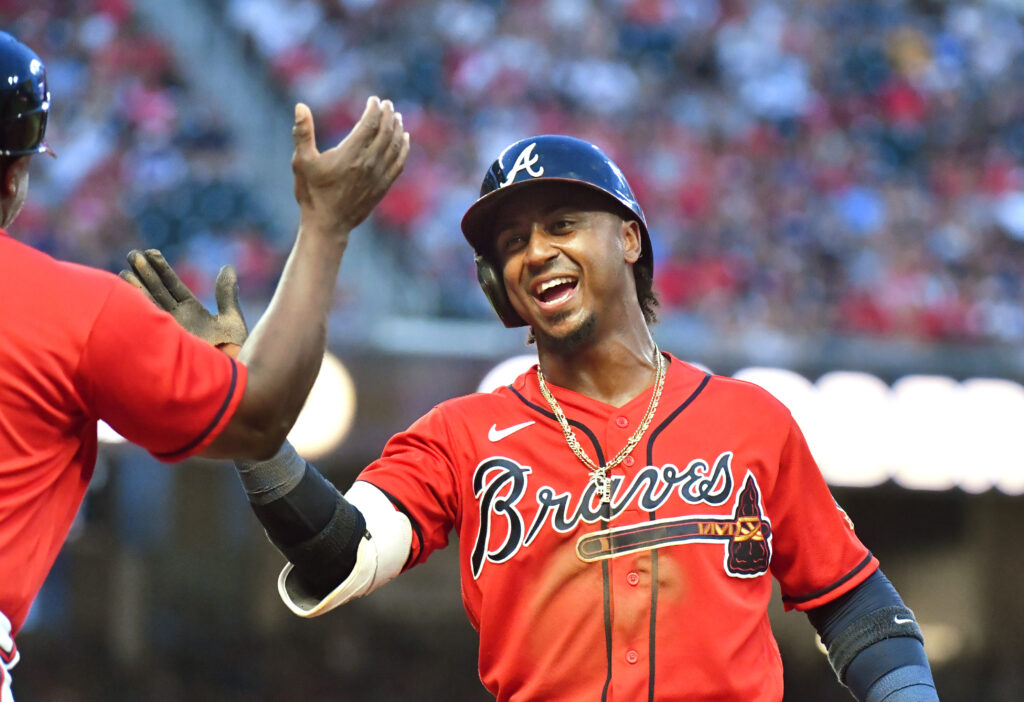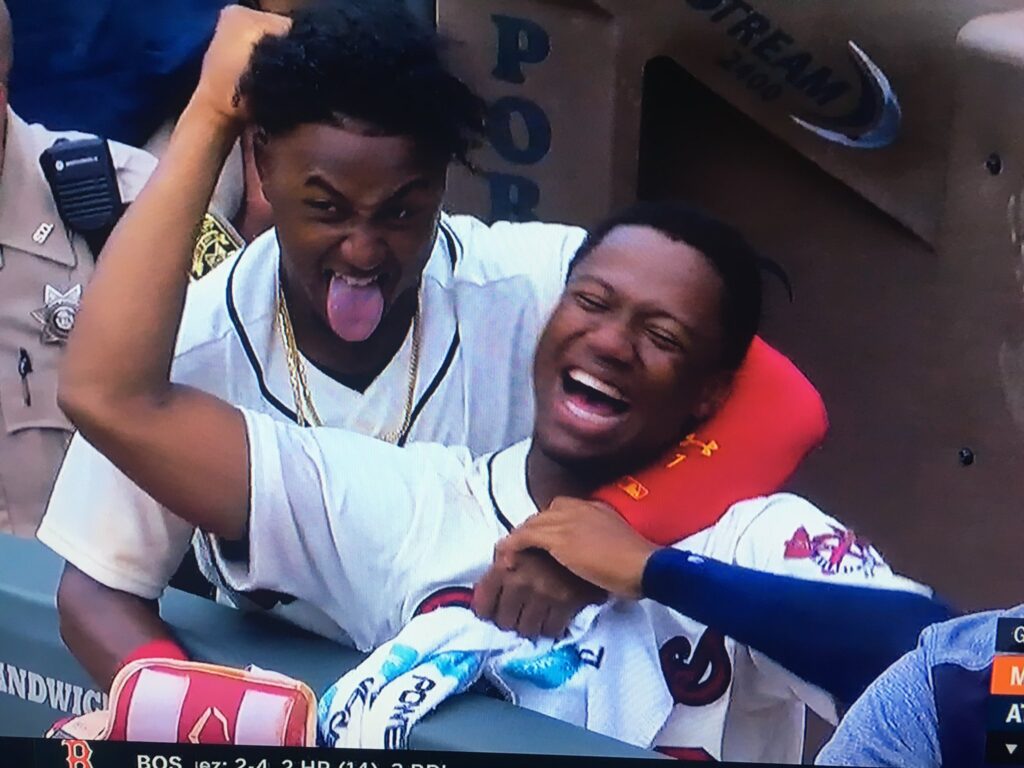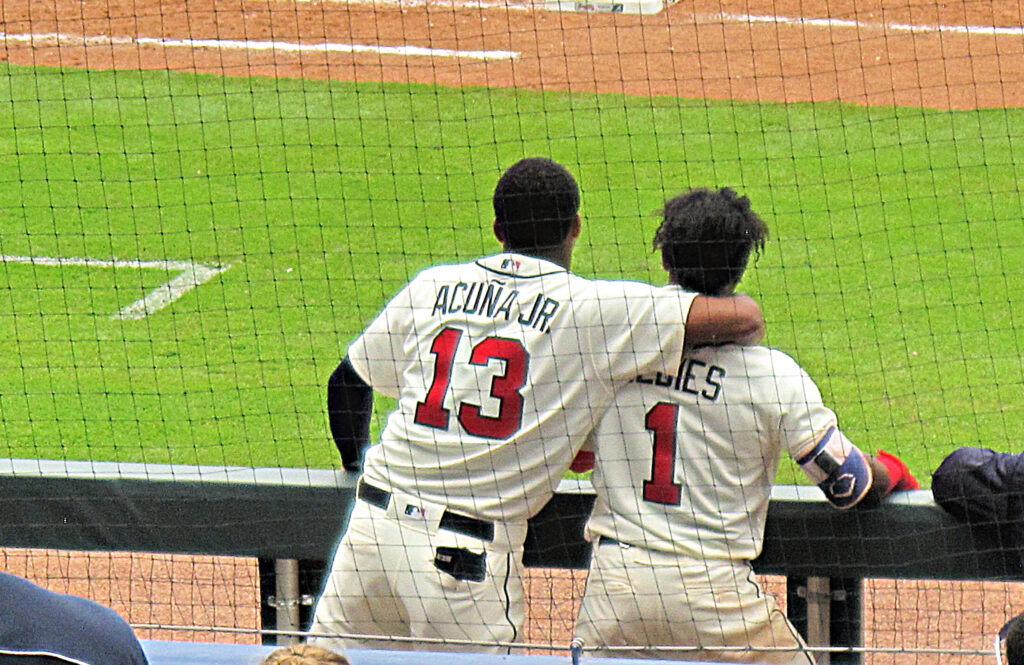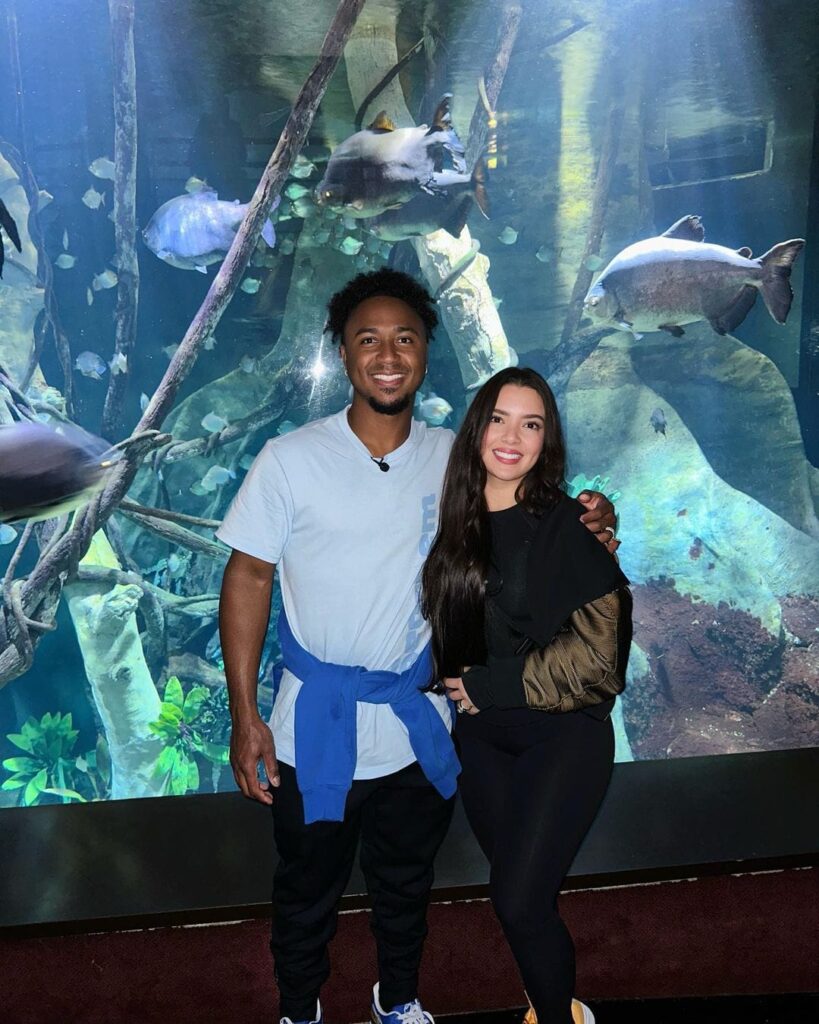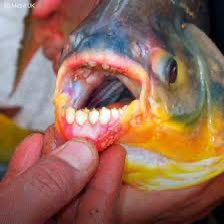Imagine for a moment that you have 25 children. You love all of them equally, right?
Yet if we’re honest, some of them may be easier to raise. You know, the ones who are perpetually cheerful. The others can be a challenge.
Now imagine you are managing a baseball team. As Atlanta Braves manager Brian Snitker has often said, “They’re my kids.”
I’ve watched those kids since I was a kid, when the Braves moved south from Milwaukee in 1966. When I became a broadcaster, I began covering the Braves as often as possible, so I’ve interviewed Aaron, Niekro, Murphy, Cox, Chipper and many not so famous names.
Upon returning from my recent spring training trip, I found myself asking, why isn’t Ozzie Albies “the face” of Major League Baseball?
I can’t speak for Snitker, but if those guys were my “kids,” I’d have a hard time not playing favorites. Ozzie puts a smile on my face, primarily because of the one he always wears on his.
Baseball is a hard game that looks easy when you’re 10 years old. Every player you see throws the ball hard, and hits it even harder. Then when you try it, you learn why only a fraction of the kids who dream of playing in the big leagues ever make it.
I think of Forrest Wall, an undersized outfielder who was one of the best athletes in the history of Maitland, Florida. Now 28, and with 10 years in the minor leagues under his belt, he’s finally made it to the Braves as a backup, often “the last guy on the bench.” Braves coach Eddie Perez was also one of those guys, and he had to adjust from playing the game every day, to maybe once a week. Perez told me part of his job is keeping Wall’s spirits up: “Always be ready, and when you get in a game, don’t try to hit a 500-foot home run. Just be yourself.” If only it were that easy.
Ozzie Albies doesn’t have to worry about playing time. The second base bag became a 13-year trouble spot for the Braves when Marcus Giles’ skills began to decline in 2005. One after another, various rookies and high-priced veterans tried and failed.
Albies, who grew up in Curacao, was signed by the Braves in 2013 at the age of 16. Scouts liked his speed, his defense and his strength. If you think of the letter “V,” that is an apt depiction of his upper body.
Albies quickly moved up the Braves’ minor league ladder, and joined the big club in 2018 at age 20. A few weeks later, an even younger Ronald Acuna Jr. joined him, and the two provided a jolt of enthusiasm and talent that has led the team to championships ever since.
We shake our heads when the 5’8” Albies swings at a pitch that is way out of his compact strike zone. But he didn’t get to the majors by being patient. As was often said about Albies’ countryman Andruw Jones, “In Curacao, nobody walks but the mailman.” If you’re going to get noticed, you had better swing the bat. (Jones is now in the Braves Hall of Fame, and should be in the national one too.)
For all of his impressive athletic abilities, Albies should be celebrated by Major League Baseball for his other obvious talent: the sheer joy with which he plays the game. Never downcast, always beaming.
Watch Albies and his friend, shortstop Orlando Arcia, head out to the field each inning. Quite often, they’re ribbing each other in a playful “tag, you’re it” manner. Albies talks up each base runner, and each umpire. He’s the mayor of 2nd base.
Some players tend to be sullen, making every effort to avoid eye contact with reporters, and even fans. Not Ozzie Albies.
Last fall, he and his wife Andreia, who maintain a large aquarium at their home, visited the Tennessee Aquarium.
When I told him I was from Chattanooga his eyes lit up, and he began raving about our Aquarium, and his favorite fish, the pacu “with human teeth!”
His love of life, learning, and baseball should make every fan proud.

